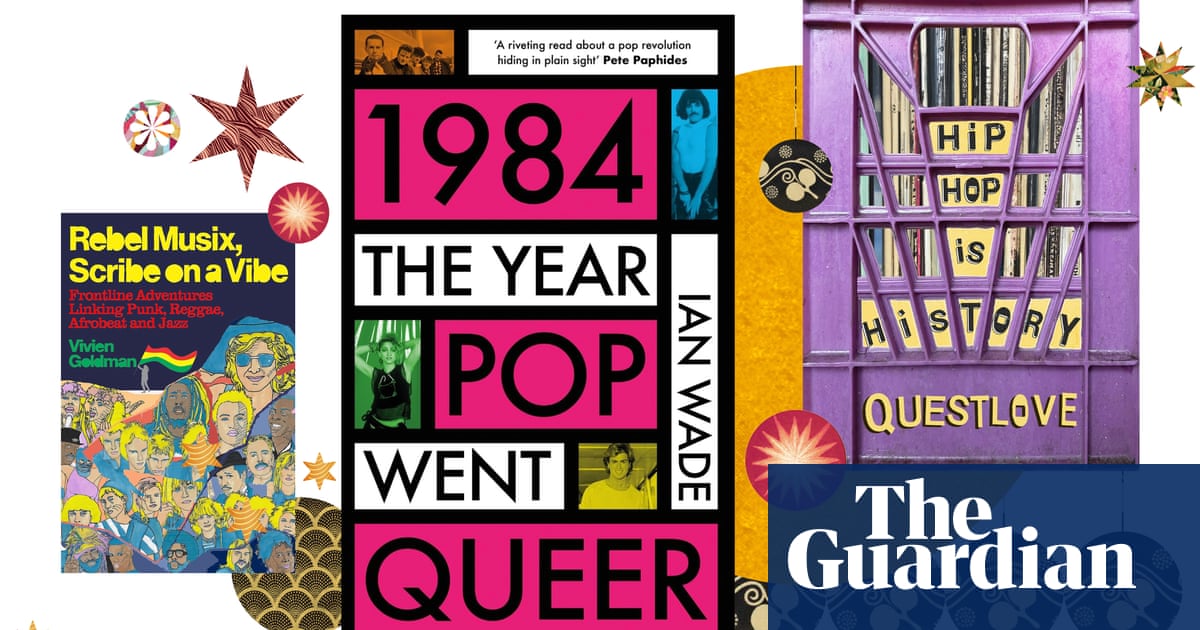The Secret Public: How LGBTQ Performers Shaped Pop Culture 1955-1979
Jon Savage, Faber
From his definitive punk history England’s Dreaming to his forensic examination of mid-60s pop culture 1966, Jon Savage’s work has long represented the gold standard of music writing. This may well be his masterpiece: an epic of meticulous research and analysis that’s fascinating in its unearthing of a frequently buried history. Beautifully written – its 800 pages absolutely fly by – it alternates between enthusiasm and righteous anger, and is utterly convincing in its relocation of queer artists to the dead centre of pop culture’s formative years. The Secret Public is brilliant on everything from Elvis Presley’s upending of traditional male stereotypes to the career of Dusty Springfield and the slow but inexorable rise of disco. The final paragraphs, which lovingly depict the audience at a 1979 Sylvester gig in San Francisco, partying “with no thought of what is to come”, are a quietly devastating testament to Savage’s understated skills as a prose stylist.
1984: The Year Pop Went Queer
Ian Wade, Nine Eight Books
… and for “what was to come”, look no further. Lighter in tone (the author’s witty, raised-eyebrow style marks him out as a teenage Smash Hits devotee) and narrower in scope than The Secret Public, Wade’s book nevertheless in effect picks up the story where Savage leaves off, identifying a year in which the British charts were unexpectedly flooded with gay artists – from Frankie Goes to Hollywood, Bronski Beat, Dead Or Alive and George Michael to a resurgent Elton John and Queen – even as the Aids crisis gathered pace. That pandemic, and the prejudice and marginalisation it provoked, provides a stark counterpoint to the taboo-busting fun and froth. There’s real erudition here, and umpteen sharp, if depressing, connections to the present day: its concluding argument suggests the same forces of reaction and dogmatic repression that underscored the queer pop explosion are once more abroad.
Street-Level Superstar: A Year With Lawrence
Will Hodgkinson, Nine Eight Books
This affecting portrait of Lawrence, the mononymous, eccentric, penurious former frontman of Felt and Denim, and the driving force behind Mozart Estate – alternative bands whose critical acclaim was never matched by broader public interest – is sympathetic but impressively clear-eyed. As he follows Lawrence to tiny gigs and on aimless perambulations about the London suburbs, listening to him retell his story, outline his plans for the future and endlessly bemoan his lot, Hodgkinson makes it clear he thinks he’s in the company of an ignored genius, but also shows his subject to be infuriating, solipsistic and self-sabotaging. Whether you see him as a fearlessly uncompromising artist battling against the odds, or just a hopelessly deluded man, almost ceases to matter: either way, it’s a funny, sad and fascinating account of a unique figure.
Rebel Musix, Scribe on a Vibe: Frontline Adventures Linking Punk, Reggae, Afrobeat and Jazz
Vivienne Goldman, White Rabbit
Goldman was among a handful of pioneering women who cut a swath through the old boys’ club of music journalism, and Rebel Musix is a long-overdue anthology of her 70s and 80s work. Unencumbered by swaggering machismo, she made a speciality of bonding with some notoriously prickly figures, Johnny Rotten (with whom she ended up recording a single), Fela Kuti and Ornette Coleman among them. Her closeness to Bob Marley as the singer achieved a particularly tumultuous global breakthrough makes for some of the most insightful writing available about him. But regardless of who she meets – from Brian Eno to Public Enemy – Goldman has something to say that’s worth hearing.
Hip-Hop Is History
Questlove, White Rabbit
Ahmir Thompson, also known as Questlove, was a preteen, washing the dishes, when he first heard the Sugarhill Gang’s Rapper’s Delight. It was a life-changing moment: as both the rhythmic engine of the Roots and as a fabulously nerdy, record-collecting scholar of the genre, he’s ended up as one of hip-hop’s elder statesmen. Both aspects of his character are brought to bear in Hip-Hop Is History, which is factually thorough (he’s occasionally given to enthusing about records so obscure you wonder if their authors even remember making them), happy to own up to incorrect judgments and woven with autobiography in way that feels entirely devoid of indulgence. Thompson’s first-hand description of the infamous 1995 Source awards, at which the east coast/west coast rivalry that would ultimately claim the lives of Tupac Shakur and Biggie Smalls erupted – he found himself between the warring factions, shrinking into his seat as things turned ugly – is gripping, discomfiting and darkly comic. His increasingly frantic attempts to keep up with hip-hop’s cutting edge as he enters his 50s represents a sharp portrait of a music obsessive in middle age.
